Environmental Resources
Contact Info
Julie Haas-Wajdowicz
Environmental Resources Coordinator
Environmental Resources Line
Related Items
Environmental Resources
Seasonal Eco-Tips
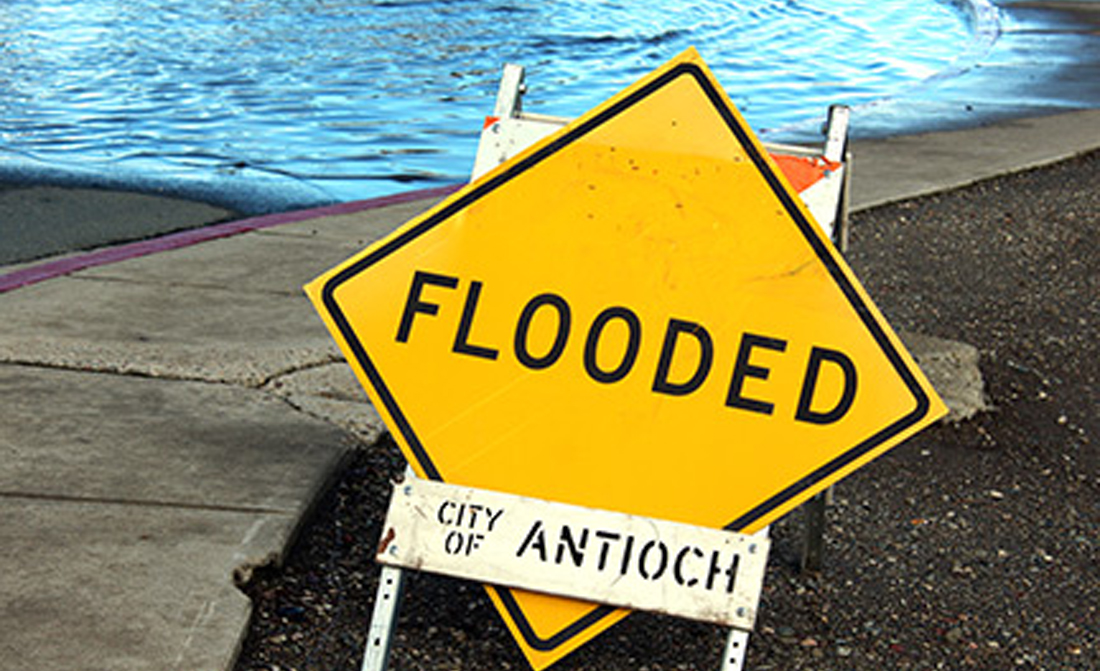
California’s Mediterranean climate means that the majority of the annual rain each year falls between December and March. In California, natural disasters related to flooding are very common. All rivers and creeks have a floodplain and flood on a regular basis, this flooding is natural serves a beneficial function. Unfortunately, many floodplains have been developed, which leaves many homes and structures at danger of flooding.
Eco-Tips During the Rainy Season
Winter Irrigation and Landscaping
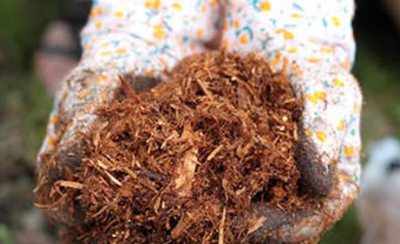 Let Mother Nature do the watering for you! Turn your irrigation controller off and let the rain do its thing. Only water manually if necessary or turn your controller back on if it hasn’t rained for 1-2 weeks – depending on the soil moisture level. The winter months are also a great time to apply mulch, as it will help protect the roots from temperature fluctuations and keep them snug during the cold months! In February, review your irrigation schedule and help to make repairs to the system in preparation for Spring.
Let Mother Nature do the watering for you! Turn your irrigation controller off and let the rain do its thing. Only water manually if necessary or turn your controller back on if it hasn’t rained for 1-2 weeks – depending on the soil moisture level. The winter months are also a great time to apply mulch, as it will help protect the roots from temperature fluctuations and keep them snug during the cold months! In February, review your irrigation schedule and help to make repairs to the system in preparation for Spring.
Prepare for the Floods
 In the City of Antioch, floods are common and will often occur with little to no warming. Know your flood risk and help prepare your family and property by learning about what to before, during, and after a flood. Importantly, you should know your Flood Hazard and be FloodSmart and get Flood Insurance. Flooding is more likely to happen when the ground is already wet, because the rain soaks slower into the wet ground. When rains are predicted in the forecast, use the rain map and the rain gauge and follow the “7 5 3 2” rule to help gauge if your property is at risk of flooding.
In the City of Antioch, floods are common and will often occur with little to no warming. Know your flood risk and help prepare your family and property by learning about what to before, during, and after a flood. Importantly, you should know your Flood Hazard and be FloodSmart and get Flood Insurance. Flooding is more likely to happen when the ground is already wet, because the rain soaks slower into the wet ground. When rains are predicted in the forecast, use the rain map and the rain gauge and follow the “7 5 3 2” rule to help gauge if your property is at risk of flooding.
Weatherize your Home
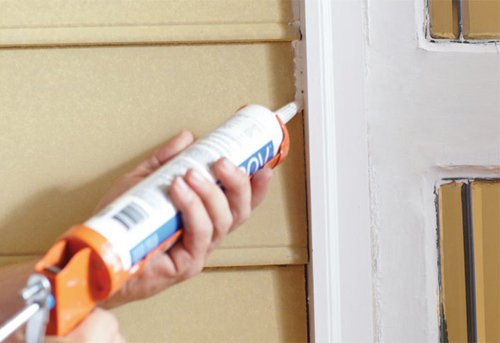 Protect your home from the outside elements in order to maximize your energy efficiency and protect your property. Protecting your home from the elements is important year round, not just the colder months. Investing time in weatherizing your home will reduce your energy bill and improve your health. Properly weatherizing your home can reduce your energy cost by up to 30 percent on a monthly basis. Lowering your home energy consumption reduces the release of carbon dioxide and other greenhouse gases into the environment while decreasing our dependence fossil fuels. Check to see if you qualify for the State and Federal Funded Weatherization Program, the program is available regardless if you own or rent, live in a house, apartment, or mobile home.
Protect your home from the outside elements in order to maximize your energy efficiency and protect your property. Protecting your home from the elements is important year round, not just the colder months. Investing time in weatherizing your home will reduce your energy bill and improve your health. Properly weatherizing your home can reduce your energy cost by up to 30 percent on a monthly basis. Lowering your home energy consumption reduces the release of carbon dioxide and other greenhouse gases into the environment while decreasing our dependence fossil fuels. Check to see if you qualify for the State and Federal Funded Weatherization Program, the program is available regardless if you own or rent, live in a house, apartment, or mobile home.
Keep your Gutters Clean
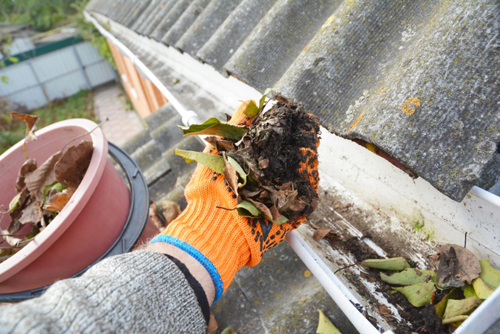 It only takes a few leaves or 10 pine needles to create a blockage that’s impermeable enough to prevent water from flowing to your downspouts. When this runoff water has no place to go, it starts to spill over the sides of your gutter and onto the ground which can erode your landscape and cause the water polluted with fertilizer and other contaminates to flow down the storm drains. Over time, this runoff water can also damage your property, such as, basement flooding, roof damage, mold and rot, and other foundation problems. Make sure you are cleaning your gutters at least twice a year. Check your gutters after the leaves have fallen and before heavy rains to help prevent clogging.
It only takes a few leaves or 10 pine needles to create a blockage that’s impermeable enough to prevent water from flowing to your downspouts. When this runoff water has no place to go, it starts to spill over the sides of your gutter and onto the ground which can erode your landscape and cause the water polluted with fertilizer and other contaminates to flow down the storm drains. Over time, this runoff water can also damage your property, such as, basement flooding, roof damage, mold and rot, and other foundation problems. Make sure you are cleaning your gutters at least twice a year. Check your gutters after the leaves have fallen and before heavy rains to help prevent clogging.
Prevent the Spawning of Mosquitos
In Contra Costa County, there are 23 species of mosquitos all of which require standing water to begin their lifecycle. In as little as five days, mosquitos start from and egg and turn into a flying adult. In addition to the annoyance of mosquito bites they can also carry deadly viruses, such as West Nile. Help prevent the spawning of a new mosquito army by checking your property standing water after rainfall – dump or drain all cans, buckets, toys, containers, and any other device that contains standing water. View the Contra Costa County Mosquito and Vector Control District Best Management Practices for Mosquitos or contact and request service HERE.

Capture Rain and Reduce your Environmental Impact
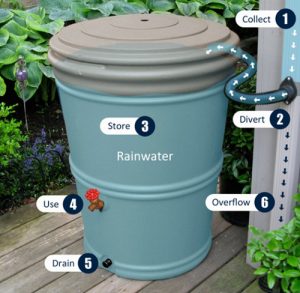 Installing a rain barrel is easy and a great way to save you money and reduce your environmental impact. Capturing rain will help to reduce runoff pollution. When it rains, runoff picks up contaminants from the fertilizers, pesticides, oils, and other things found in the soil and pushes them into our storm drains, which in turn contaminate our waterways. Additionally, capturing rain will give you more control and provide you with quality water for your garden when there are breaks from rain and help prevent erosion when the rain is heavy during the winter months. Because of the semi-arid climate, maintaining the barrel and regularly inspecting for mosquitos is important. Make sure you use the water collected or to timely draining to ensure best results.
Installing a rain barrel is easy and a great way to save you money and reduce your environmental impact. Capturing rain will help to reduce runoff pollution. When it rains, runoff picks up contaminants from the fertilizers, pesticides, oils, and other things found in the soil and pushes them into our storm drains, which in turn contaminate our waterways. Additionally, capturing rain will give you more control and provide you with quality water for your garden when there are breaks from rain and help prevent erosion when the rain is heavy during the winter months. Because of the semi-arid climate, maintaining the barrel and regularly inspecting for mosquitos is important. Make sure you use the water collected or to timely draining to ensure best results.

